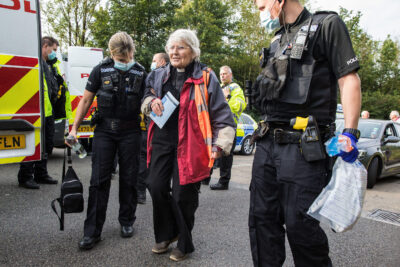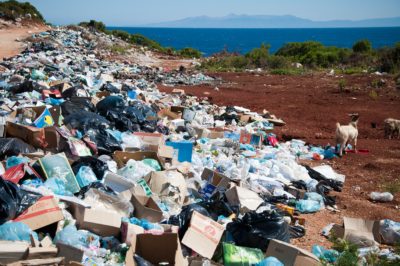Climate change, like Covid-19, is linked to racism
This article first appeared in Green Christian Magazine, Issue 90 (Autumn 2020). It is reused here with permission.
Way back in early April, writer and activist Arundhati Roy, in an article for the Financial Times wrote of Coronavirus as having “brought the world to a halt.” She went on to say:
“Historically, pandemics have forced humans to break with the past and imagine their world anew. This one is no different. It is a portal, a gateway between one world and the next.
“We can choose to walk through it, dragging the carcasses of our prejudice and hatred, our avarice… our dead rivers and smoky skies… Or we can walk through lightly, with little luggage, ready to imagine another world. And ready to fight for it.”
Who could have imagined that one of the outcomes of this pandemic would be global protests about racial injustice, unprecedented not only in scale and spread, but also in the drawing in of large numbers of white people? George Floyd’s harrowing “I can’t breathe” had been uttered in 2014 by Eric Garner, also killed in a police chokehold at the roadside. That death too was caught on a graphic video, and protests ensued. But as with most racial justice protests, the response was largely limited to black-majority cities, with the noticeable absence of white people.

This time, in the midst of a global pandemic, a black man pleading in vain for his life at the hands of nonchalant agents of the state exposed a shared vulnerability and ignited a global response. Big brands from Apple and Netflix, to Lego and even Yorkshire Tea are now keen to display anti-racist credentials. Books about racism briefly topped the best-seller charts and organisations everywhere including churches, museums, charities and drama schools seemed to be discussing the issue. Whether this is a fleeting moment or the beginning of the dismantling of institutional racism will depend on whether all those joining this movement persevere with the hard work of holding those in power to account.
Covid-19 disproportionately affects people of colour, who experience far higher infection and death rates than white people
For people in the climate movement, for whom 2020 was going to be a big year, this moment has been an opportunity for reflection. Suddenly, Corona threw us into another sort of emergency with terrible threat to life and the loss of everyday freedoms. Overnight, our sophisticated 21st century lives were stripped down to the bare bones of food, shelter and communication. Those extraordinary early weeks were both frightening and heartening: “global pandemic” was no longer hyperbole, and here we were, anxiously watching the news about Italy whilst also delighting in the spawning of thousands of mutual aid groups, and neighbourhood Whatsapp chats created to enable people to shop for strangers and look out for the elderly and the frail.
We were just beginning to grasp that people of colour were dying in greater numbers from Covid-19 when the atrocious killing of George Floyd shook the world. And the response became the portal which carried so many to greater reflection on the prevalence of racism in our world.

How does the clamour for racial justice connect to the need for action on climate change?
I am a latecomer to environmental campaigning, having spent years grafting on issues of justice and inequality in my work and beyond. So my entry point to climate is the disproportionate impact on poor communities.
I want to focus on air pollution and the rapacious exploitation that characterises fossil fuels industries and other conglomerates. I am motivated to act because I know that unless we do the work to limit global warming to a 1.5°C rise, people whose lives are already very hard will suffer terribly. People in poor communities in the UK and US – as well as in Bangladesh, Haiti, Indonesia and the Pacific Islands.
UK air pollution is particularly acute in deprived inner city communities, and it disproportionately affects the very young and the elderly; stunting children’s growth, affecting their health, increasing risk of asthma and even death. So for me, climate change is a justice issue – poor people, largely people of colour, are already paying the price for generations of profligate consumption and wilful destruction of the planet’s resources.
Unless we do the work to limit global warming to a 1.5°C rise, people whose lives are already very hard will suffer terribly.
Covid-19 disproportionately affects people of colour, who experience far higher infection and death rates than white people, with fatalities twice as high among the Bangladeshi community; 90% of doctors who died came from BAME backgrounds. Public Health England has pointed to entrenched racism as a root cause. These untimely deaths are the result of multiple factors to do with access to healthcare and decent housing; working in service roles with greater exposure; the government’s “hostile environment” policy; and also that healthcare workers of colour report being pressured into treating patients without appropriate PPE. Taken together, this is a description of systematic racism. In a piece in the New Statesman in June, Gary Younge wrote: “These deaths are the collateral damage of British racism – the indirect consequence of decades of exclusion that have corralled black and Asian people into the kind of jobs, housing and health situations that would make us particularly vulnerable.”
This signals the devastating impact environmental degradation and global warming will have for people of colour. Not because of individual acts of racism, but because of a system of inequality and exclusion which, like the Covid fatalities, work together to disproportionately impact black and brown people. Efforts to tackle climate change must encompass the underlying inequalities and systemic racism that leave people of colour more exposed.
I want to be part of a climate movement that goes beyond lifestyle choices about diet, air travel and “eco-products”, to encompass tackling air pollution in urban areas and supporting investment into under-resourced communities to adapt to or recover from extreme weather. Furthermore, it is time to recognise that people of colour are rarely at the table when decisions about resources and priorities are made. To effect real change, the climate movement, and the institutions working to reduce global warming, need to listen deeply to, and amplify, diverse voices and perspectives.
Radhika Bynon is a specialist in community-led change and social innovation. She has worked on equality and womens’ rights issues in the UK and internationally through The Young Foundation, Community Links, Asha Trust and the Global Fund for Women. She is active in Green New Deal UK and Extinction Rebellion Newham and is leading a Radical Presence group in East London.
Related Stories

Bodies on the Line: A Clarion for Christians
An exclusive extract from Rev'd Sue Parfitt's new book on Christians, Civil Resistance and the Climate Crisis - out soon via Lab/ora Press.
Jul 26 2023

Walking Ancient Paths to the Future: Eight Things
Lya Vollering shares eight concluding lessons from ninety-six days spent walking the Via Francigena.
Jul 25 2023

Thanks for following Lya on her journey along the Via Francigena to Rome. Here she shares her reflections on the final week of her eco-pilgrimage.
Jul 18 2023





